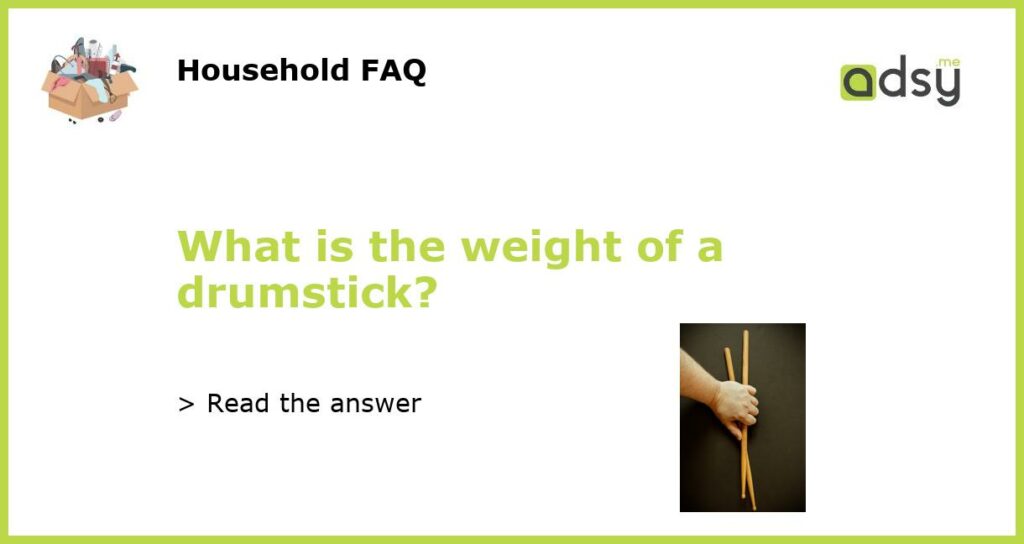The Weight of a Drumstick: Exploring Different Measurements and Factors
If you ask drummers, the weight of a drumstick can be a hotly debated topic. From the type of wood to the length and diameter of the stick, different factors can affect its weight. In this article, we’ll take a closer look at drumstick weight and explore various measurements and factors that can impact it.
Measuring Drumstick Weight
To accurately measure the weight of a drumstick, you’ll need a scale that can weigh in grams or ounces. Most drumsticks are labeled with their weight, which typically ranges from 38-70 grams or 1.3-2.5 ounces. However, as we’ll see later, the weight labeled on the drumstick may not always be entirely accurate.
Factors That Affect Drumstick Weight
One major factor that can impact the weight of a drumstick is the type of wood it’s made from. Hickory and maple are two of the most popular woods used for drumsticks, with hickory being denser and heavier than maple. The length and diameter of the stick can also impact its weight, with longer and thicker sticks typically weighing more.
The weight of the tip of the drumstick can also be a factor. Some sticks have a heavier tip, which can help produce a louder sound, while others have a lighter tip for more sensitivity and finesse. The taper of the stick, or its gradual decrease in diameter from the butt to the tip, can also play a role in its weight.
Why Weight Matters for Drummers
The weight of a drumstick can impact a drummer’s playing style, technique, and overall sound. Lighter sticks may be more agile and easier to play fast patterns with, while heavier sticks can provide more power and projection. The weight of the stick can also affect how it feels in the drummer’s hand and how fatigued their hands and arms may become during long playing sessions.
Conclusion: It’s Not Just About Weight
While drumstick weight is an important factor to consider, it’s not the only thing that matters when choosing a pair to play with. Other factors such as wood type, tip shape, and taper can all make a difference in the feel and sound of the stick. Ultimately, the best drumsticks for a drummer will depend on their personal preferences, playing style, and the needs of the music they’re playing.






